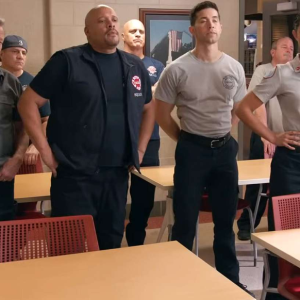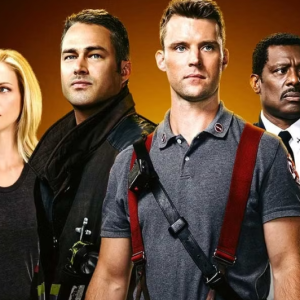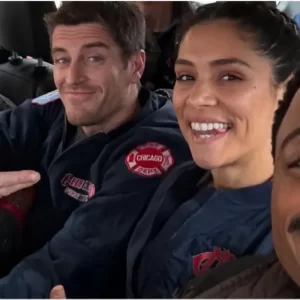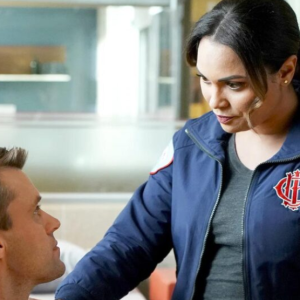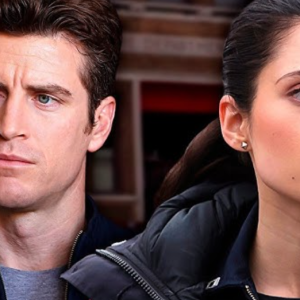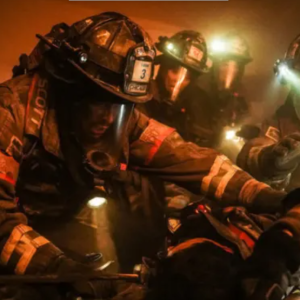The Chicago Fire family is reeling after Daniel Kyri officially said goodbye to his role as Darren Ritter. After seven years and eight seasons, Kyri filmed his final scenes at Firehouse 51, closing a chapter that defined both his career and the show’s modern era. His heartfelt announcement, shared on Instagram, captured not only the depth of his personal journey but also the impact Ritter had on fans worldwide.
Kyri’s post reflected on how a role meant for just three episodes blossomed into a defining legacy. “Yesterday, I filmed my last scenes as Ritter & I’m still so amazed that my first-ever TV gig… turned into seven incredible years and spanned eight seasons of this iconic show,” he wrote.
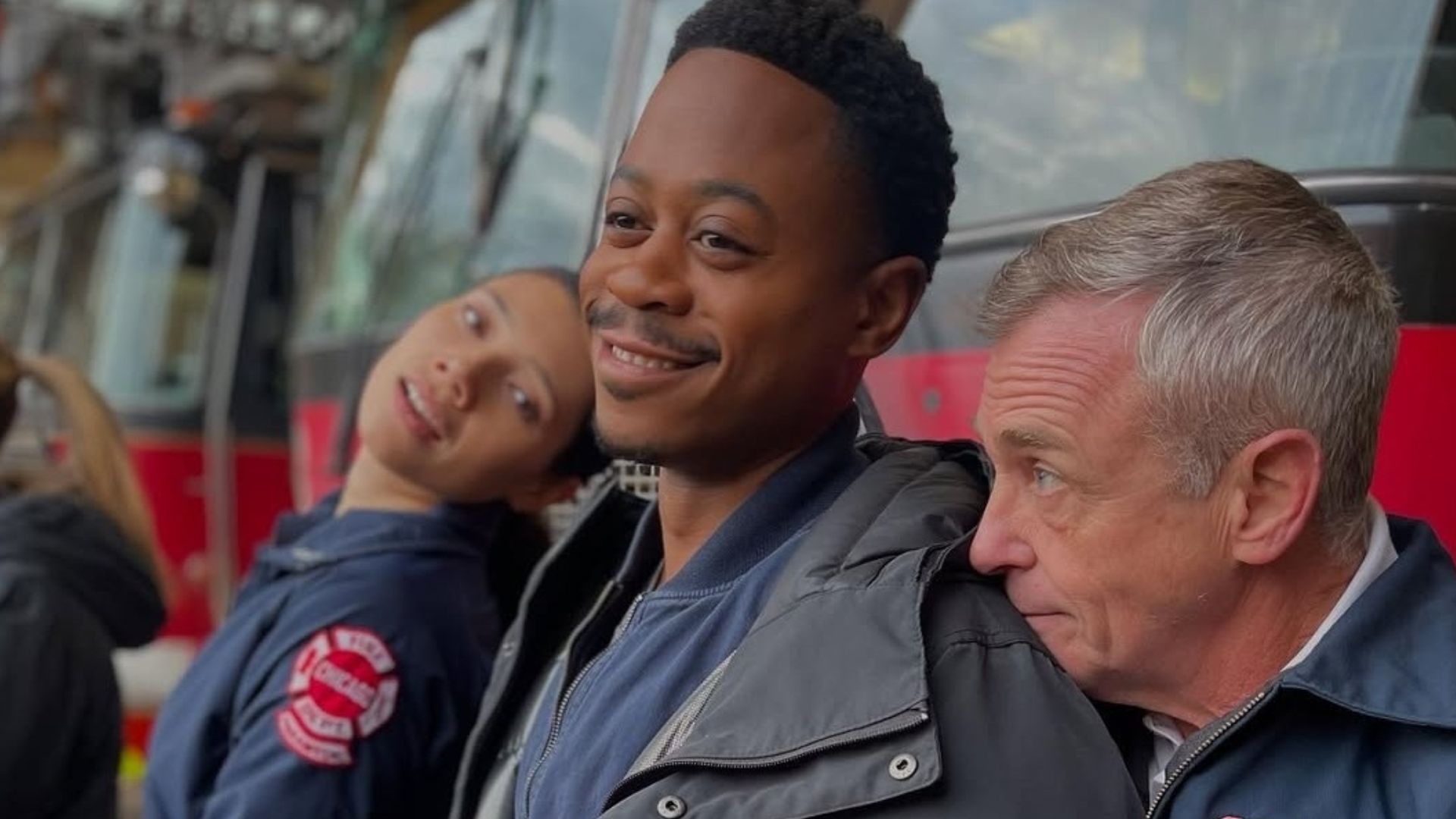
Making Television History
Ritter wasn’t just another firefighter on the team — he was a breakthrough character. As a proud, openly gay Black firefighter, Ritter embodied empathy, loyalty, and bravery. For Kyri, portraying him was a deeply healing and personal experience.
“Bringing Darren Ritter to the screen has transformed & healed me in equal measure,” Kyri said. “He is a man who embodies empathy, humility, compassion, and unwavering bravery… a possibility I never got to see onscreen in my childhood but desperately craved.” His final words to the character summed it up perfectly: “You made history. Thank you so much, Darren Ritter. And goodbye.”
From Nervous Candidate to Firehouse Rock
When fans first met Ritter, he was a timid candidate who froze on a call. Nearly washed out of the firehouse, he was rescued by veteran Mouch, who saw his potential and mentored him. That moment sparked Ritter’s transformation into a firefighter defined by courage and compassion.
Over time, Ritter became part of Firehouse 51’s “new guard” alongside Blake Gallo and Violet Mikami. Together, the trio brought youthful energy and fresh dynamics to the series. Their friendship, humor, and shared struggles helped breathe new life into the later seasons.
A Void at Firehouse 51
Ritter’s exit is not just a goodbye — it’s a seismic shift. Engine 51 is losing its moral center, as Ritter was often the steadying influence during chaos. With Gallo already gone and Carver written out, the once-promising “next generation” of Firehouse 51 has been scattered.
This raises big questions for the show. How will the writers replace Ritter’s empathy and quiet strength? Can Violet anchor the younger generation alone? The absence of Ritter will undoubtedly reshape the team dynamics moving forward.
How Will Ritter’s Story End?
Kyri’s departure has been confirmed, but the show has yet to reveal how Ritter will exit. Will he accept a transfer? Chase a new opportunity outside of Chicago? Or will the writers take the darker route with a tragic sendoff?
Fans are hopeful the character will get a fitting, positive ending after years of growth. A new city or a promotion would feel like a tribute to Ritter’s resilience. Yet Chicago Fire has a track record of gut-wrenching deaths, and some fear the show may deliver one final heartbreak.
Ritter’s Lasting Legacy
No matter how his story wraps, Darren Ritter’s legacy is secure. He proved that bravery is not only about fighting fires but also about standing tall in one’s identity. His presence broke barriers in primetime television, offering representation long overdue.
Kyri’s nuanced performance ensured Ritter was never a stereotype but a fully realized, beloved character. Fans celebrated him for his humanity, kindness, and courage. Even in his absence, his influence will echo throughout Firehouse 51.
Firehouse 51 in Transition
Daniel Kyri’s exit is part of a larger wave of change. With Boden retired and Brett gone, Firehouse 51 is in a transitional era heading into Season 14. Longtime fans are grieving familiar faces while bracing for new arrivals.
Kyri’s heartfelt goodbye reminds us that Chicago Fire is more than action and rescues — it’s about family, loss, and growth. Ritter’s journey from nervous recruit to role model reflects exactly why this series resonates with audiences. His final bow is both heartbreaking and inspiring, sealing his place in Chicago Fire history.


